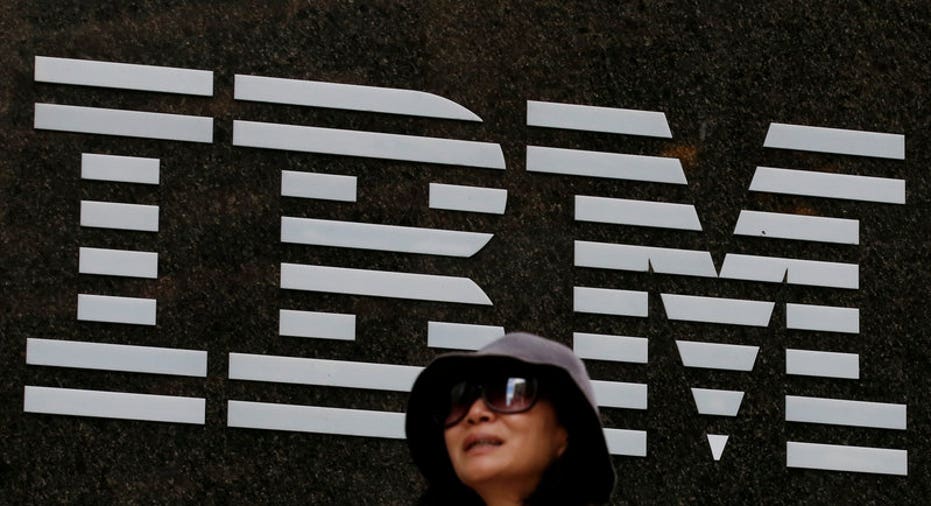IBM's Mini Anti-Trump Revolt: Here Is the Real Issue

Just when you thought the relationship between President Trump and big tech couldn’t get worse, a petition signed by more than 1,800 IBM (NYSE:IBM) employees calls for CEO Ginni Rometty to withdraw support for the President and his controversial immigration order that has dozens of Silicon Valley companies up in arms.
Rometty sits on the President’s business advisory council. She previously penned an open letter congratulating Trump on his election victory and offering ideas on job creation. Uncontentious as it was, the letter sparked a mini-revolt at IBM’s quiet Armonk, New York headquarters. I bet Rometty didn’t see that coming.
IBM joins a growing number of tech companies getting drawn into the anti-Trump fray.
Apple (NASDAQ:AAPL), Google parent company Alphabet (NASDAQ:GOOGL), Microsoft (NASDAQ:MSFT) and Facebook (NASDAQ:FB) are among 120 technology companies that joined legal action against the President’s temporary travel ban from seven predominantly Muslim nations. And 200 entrepreneurs, startups and venture investors signed a letter denouncing the initiative, as well as a proposal to overhaul the H1-B work visa program.
A federal judge in Washington state has temporarily blocked the executive order.
If we’re to take these companies at their word, their objections boil down to three things: America and many high-tech companies including Intel (NASDAQ:INTC), Google and Tesla (NASDAQ:TSLA), were founded or built by immigrants; Trump’s actions fly in the face of the industry’s progressive diversity and inclusivity agenda; and of course, freedom of religion.
The question is, are those criticisms fair?
Trump’s supporters would say that every modern president going back to Ronald Reagan has signed several immigration bans under the same section of the Immigration and Nationality Act of 1952 that gives broad presidential powers to suspend entry of aliens that pose a security risk.
And the countries sited in Trump’s order were actually identified by the Obama administration and affirmed by Congress as the most dangerous because they harbor terrorists and lack internal controls for identifying and vetting travelers, immigrants and refugees.
The criticism that it’s a religious ban doesn’t hold up, since the vast majority of the world’s Muslim population is not affected by the order.
Lastly, they would argue that it’s just a 90-day travel suspension (120 days for refugees, and indefinitely for those from Syria) until better procedures can be implemented. If a refugee is going to be the next Andy Grove or Sergey Brin, he can wait a few days before starting up the next Intel or Google.
That’s all true. Also true, however, is that similar orders by previous presidents were not as broad. For example, a travel ban from the same seven countries was signed into law by President Obama in 2015, but it did not include those with legitimate visas to visit or work in the United States.
That, I believe, is where Trump went wrong.
Even though his order allows for exceptions on a case-by-case basis, its chaotic implementation blindsided hundreds of companies and stranded many legitimate business travelers at airports and overseas. Even green card holders were initially detained, although that was apparently unintentional.
The order was simply not well thought-out or rolled-out.
There’s one other problem. It was signed by someone named Donald Trump. Not to be cynical, but Barack Obama was Silicon Valley’s president. Trump is not. If you live in the Valley and voted for Trump, you’re a member of the silent minority – unless your name is Peter Thiel.
If there are potential issues with Trump’s policies, the Valley elite will come after him with everything they’ve got, and the President gave them legitimate grounds for doing just that. It was an unforced error, which a leader in a new position never wants to do in the early days of his tenure. Certainly not a U.S. President.
This is an important test for Trump. Our foreign worker visa program (H1-B) is broken and needs an overhaul, and the administration has been circulating a draft proposal for weeks. Let’s hope Trump learns a lesson and doesn’t make the same mistakes. If not, the nation’s most powerful industry appears ready to fight him every step of the way.



















